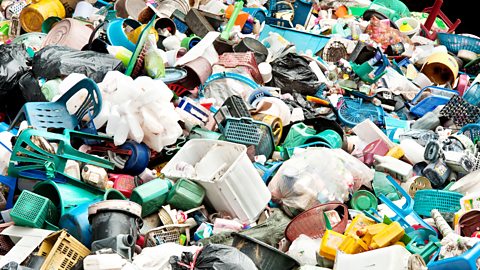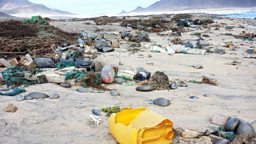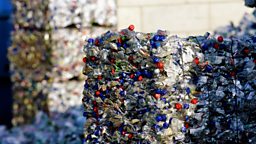Here's the first episode from last week:
First Flush of Love
Plastic Fantastic
Plastic waste and pollution have become a global problem but is there any sign of a global solution? And how did we allow this to happen in the first place? Across three programmes, materials scientist andbroadcaster, Professor Mark Miodownik, explores how we fell in love with plastic, why we've ended up with oceans of waste blighting the environment and what science and society can do about it.
Programme 1 - First Flush of Love
We may not be on speaking terms right now. But we do have a love affair with plastic, in fact it can be all consuming. Adaptable, lightweight, cheap and hygienic - fantastic plastics started to win our affection back in the late 19th century. Bakelite was an early plastic invented to replace expensive wood. Celluloid was one of the earliest plastics, failing to replace ivory in billiard balls, but revolutionising the world as movie film. Plastic really did change our world. Plastic radar insulation played a role in helping the Allied forces win the Second World War and after the conflict, factories start to churn out cheap, mass-produced goods in the new synthetic polymers. But some of the key virtues of plastic may now have paradoxically poisoned the relationship. Being virtually indestructible, has led to a build-up of toxic micro-plastic in the oceans and environment. We've grown to regard many plastics as cheap and disposable, we take it for granted, rely on it too much, value it too little and are too ready to cast it aside after one single use.
BBC Radio 4 - Plastic Fantastic, First Flush of Love
And here's the second episode from last night:
Things Start to Go Stale
Plastic Fantastic
Plastic waste has been a global crisis waiting to happen. To date it's estimated that around 8.3 billion tonnes of waste plastic exists. That's 25 Empire State Buildings or 1 billion elephants. Incredibly around half of this has been generated in just the last 14 years, despite mass production having begun in the 1950s. Events such as China's recent refusal to take any more "foreign rubbish" and Sir David Attenborough's graphic portrayal of the devastation that plastic waste is causing in our oceans, has prompted political and media discussion like never before. We are at a critical moment where, if we're to turn the tide on plastic pollution, it will require science and society to come together to create real change. But it won't be easy. One major area that needs an overhaul is recycling. In the UK only 14% of plastic collected is recycled. We, and the rest of Europe tend to burn our waste for energy, and plastic has a calorific value similar to that of coal. But proponents of the circular economy say we should never consider plastic as waste at all and we should think of it as 'Buried Sunshine' - a resource that needs conserving - by reusing and recycling again and again.
BBC Radio 4 - Plastic Fantastic, Things Start to Go Stale
Here's the home page for the series:
.
.
.





No comments:
Post a Comment